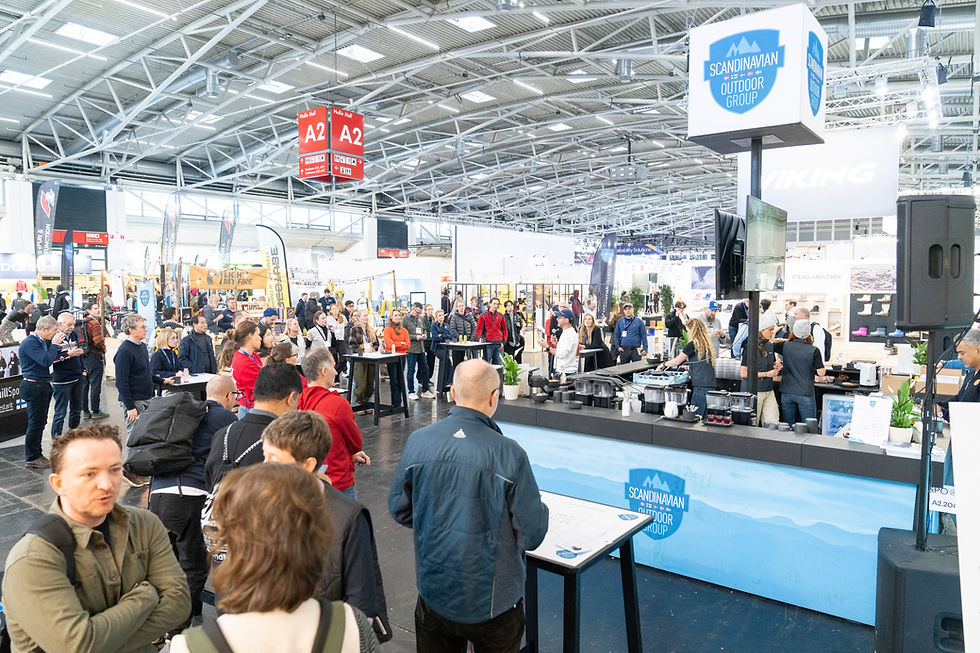From signal to substance: The new rules of consumer trust
- fredrik ekstrom
- 23 okt. 2025
- 4 min läsning
In this contribution for "Beyond Nonsense," Fredrik Ekström, founder of Above The Clouds, explains why German consumers are demanding proof over promises. Drawing on The NXT Consumer Germany 2025, he shows how outdoor and sporting goods brands must move from slogans to substance if they want to earn lasting trust.

In the German market, the age of eco-slogans is over. The NXT Consumer Germany 2025 shows that consumers are not abandoning purpose — but they demand it be backed by proof. 87% of Germans (and 89% of Gen Z) now expect brands to actively support environmental causes. More than six in ten say they would pay more for a brand that backs the causes they believe in.
The signal is clear: purpose still matters, but today it has to show its work.
Proof over poetry
For years, brands have leaned on lofty slogans and ambitious pledges. But German consumers are now deeply sceptical of long-term promises. “We’ll be climate-neutral by 2035” no longer wins trust. Instead, they ask: What progress did you make this month?
The report reveals a paradox in brand language. Words like climate-neutral, recycled, and sustainable still rank as the most trusted — but also the most overused and tiring. This is not a rejection of sustainability, but a sign of emotional fatigue. Consumers still want these things — but they want brands to prove them in action, not just repeat them in advertising.
From signals to substance
What counts as substance? The data highlights five areas where consumers most want to see brand engagement:

1. Protecting biodiversity (42%)
2. Promoting renewable energy (36%)
3. Cleaning up plastic (33%)
4. Securing clean water (29%)
5. Supporting fair wages (26%)
These “Big Five” causes represent more than just safe talking points. They are visible, tangible proof areas that link directly to consumer values. They cut across environmental and social sustainability, reminding brands that credibility today is holistic.
And consumers don’t just want brands to act — they want to take part. Nearly half of Germans say they want to join brand-led initiatives, from clean-up days to community campaigns. Engagement is no longer about messaging; it’s about shared action.
What This Means for Outdoor and Sporting Goods
The outdoor industry has long benefited from authenticity in sustainability. But the shift from signal to substance raises the bar higher. For brands in sports and outdoor, three strategic imperatives emerge:
1. Radical specificity. Publish product-level impact data: CO₂ saved per jacket, liters of water used, wage share per product. Generic claims no longer build trust
2. Progress in public. Replace annual CSR PDFs with real-time dashboards and monthly updates. Show momentum, not just goals
3. Shared-action platforms. Create opportunities for consumers to participate — circular services, repair clubs, brand-led clean-up events
Consumers are not only buying gear. They are looking for brands that help them feel part of the solution
The Engagement Baseline
For German consumers, sustainability has matured from a differentiator into a baseline expectation. Brand activism is no longer optional; it is the new license to operate. But the rules of engagement have shifted: from signal to substance, from purpose to proof.
The risk is clear: brands that stay vague or rely on slogans will be filtered out by skeptical Proof Seekers, a third of the market who demand evidence before they buy. The opportunity is equally clear: brands that embrace transparency, offer micro-proof points, and build participatory platforms will not only win trust but also cultural relevance.
The shift from signals to substance is the maturity of purpose, where proof and participation define trust. Outdoor and sporting goods brands that embrace this shift will gain both loyalty and cultural relevance. Brands need to decode these consumer expectations and translate them into communication strategies that resonate and last. In 2025, the strongest engagement doesn’t come from telling consumers what you believe. It comes from showing them what you’ve done — and inviting them to join.
3 Proof Points That Win German Consumers
· 87% expect brands to actively support environmental causes
· 60% say they would pay more for brands that show real results, not just slogans
· 47% want to join brand-led initiatives such as clean-ups, repair clubs, or community campaigns
Top five causes consumers want brands to support:
1. Protecting biodiversity (42%)
2. Renewable energy (36%)
3. Plastic clean-up (33%)
4. Clean water (29%)
5. Fair wages (26%)
About the Report
The NXT Consumer Germany 2025 is part of the Future Series™ by Above The Clouds, created in collaboration with studio MM04. It combines five years of Nordic consumer tracking with fresh German insights, based on 1,306 respondents including a boosted Gen Z sample of 601. The report explores preferences, aspirations, status markers, and anxieties around sustainability and consumption — translating raw data into actionable foresight. Think of it as a bridge: carrying the longitudinal strength of the Future Series while anchoring it firmly in Germany’s cultural and socio-economic context.




Kommentarer